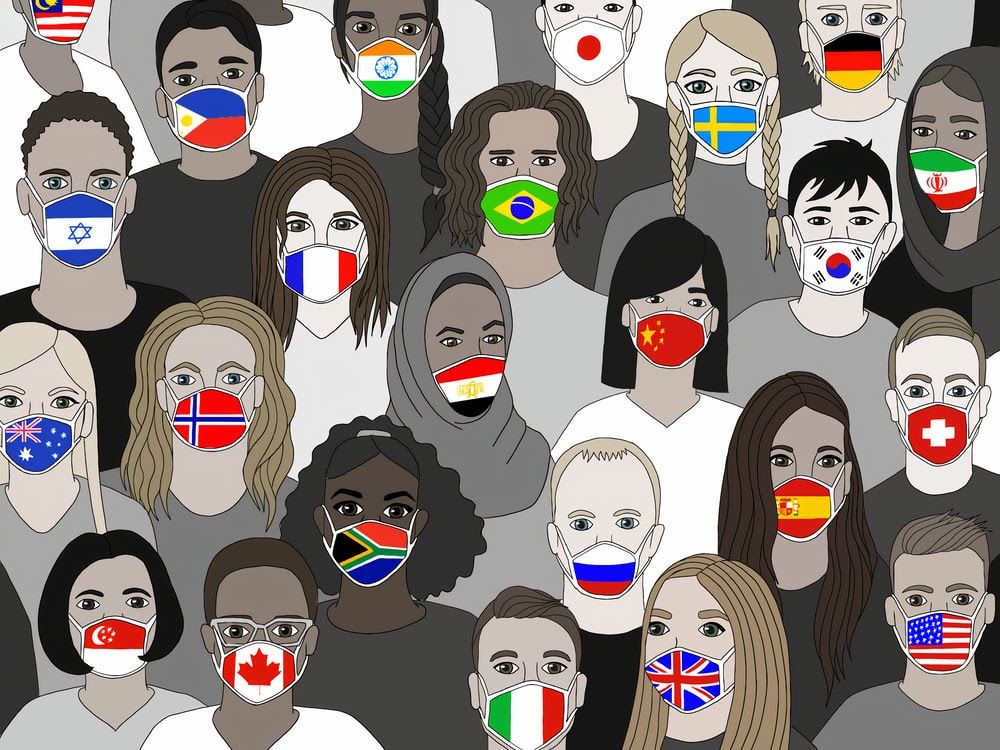The world's leading experts cannot say for sure what the future of Covid-19 is. Imagine us. But based on human experiences with other infections there is little reason to believe that SARS-CoV-2 will disappear anytime soon, even when vaccines are available.
A more realistic scenario is that Covid-19 will be endemic: it will be added to the (large and growing) family of persistent infectious diseases among the human population.
With the worldwide explosion of the disease, it seems unlikely that the measures currently available can do more than keep its spread in check, except in countries that can effectively isolate themselves from the outside world.
The vast majority of people are still susceptible to some degree. This means that there is enough fuel for the fire to continue to burn for quite some time.
Few illusions
Covid-19, as mentioned, will likely be endemic even if specific locations reach what is known as herd immunity (and it is unclear how likely this is). When a sufficient number of people become immune to a disease, either by vaccination or natural infection, its spread begins to slow down and the number of cases gradually decreases. But that doesn't mean it will disappear instantly, completely or everywhere.
Outside of any area with population immunity, there are likely to be many places with enough susceptible individuals to continue transmission. No measure of isolation is strong enough to completely stop human interaction between regions. Within and between countries or around the world.
It is also possible that the spread of an infection will eventually stabilize at a constant level so that it always becomes present in communities, possibly at a relatively low, sometimes predictable rate. This is what is meant by endemic disease.
Covid-19 endemic, in good company
Some infections are present and actively spread almost everywhere (such as many sexually transmitted infections and childhood infections). But most infections are endemic to specific parts of the world. This is the case with malaria and many other mosquito-borne infections.
Theoretically speaking, an infection becomes endemic if on average every infected individual passes it on to another person. In other words, when the reproduction number (R) is equal to 1. Conversely, during an epidemic when the spread of the disease is increasing, R is greater than 1 and when the spread decreases through control measures or immunity of the population, R is less than 1.
In practice, there are a number of patterns that can be observed in endemic diseases. Some may exist at low levels throughout the year, while others may exhibit higher transmission periods interspersed with low transmission periods.
Waning immunity
In diseases that give lifelong immunity after infection, every newborn is susceptible after the immunity gained by the mother wears off.This is why childhood infections such as measles are endemic in many parts of the world where the rate of birth rate is quite high.
In diseases that only give temporary immunity through natural infection, people lose that immune protection to become sensitive again. A virus or bacterium can also evade immune memory by mutation, so that people with immunity to an older strain become susceptible to the new version of the disease. The flu is a great example.
We still don't know how long immunity from COVID-19 infection will last or how good the vaccines will be to protect people. But other coronaviruses endemic in the human population, such as those that cause colds, they only confer a temporary immunity of about one year.
Covid-19 endemic: how to react
How we manage COVID-19 once it becomes endemic will depend on how good our vaccines and treatments are.
If they can protect people from the most severe outcomes, the infection will become manageable. Covid-19 will therefore be like many other diseases we have learned to live with and many people will experience it in their lifetime.
Depending on whether immunity (from natural infection or vaccination) is permanent or temporary, we may then need annual vaccine updates to protect us from coronavirus, a bit like the flu.
Or it could be controlled with vaccination at an optimal age (like many childhood infections).
If vaccines not only prevent clinical disease, but also strongly reduce transmission and confer lasting immunity, we can foresee other scenarios, such as the potential eradication of the disease. But realistically this is unlikely.
Eradication is notoriously difficult, even for diseases for which we have near-perfect vaccines and lifelong immunity.
Endemic disease is therefore the most likely outcome.
Anne Gatignol, Professor – Department of Medicine, Division of Experimental Medicine.
https://www.mcgill.ca/expmed/dr-anne-gatignol
"COVID-19, caused by SARS-CoV-2, remains a pandemic that continues to affect and kill people around the world. Patients are being better treated and some converted therapies are moderately effective against COVID-19.
The focus is now on finding specific treatments that target the virus and vaccines that provide protective immunity.
Anne Gatignol is a full professor in the Department of Medicine and an associate member of the Department of Microbiology and Immunology.
She teaches virology and viral pathogenesis, including emerging viruses. Her research focuses on virus-cell interactions as applied to human immunodeficiency virus (HIV) and Zika virus.



Comment here